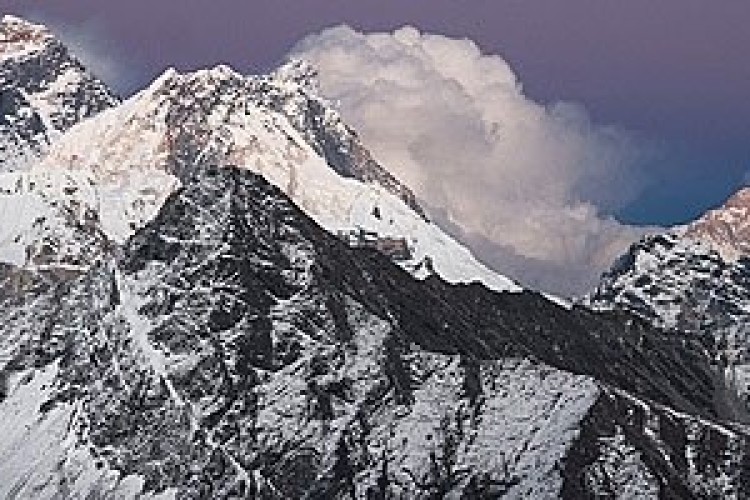An aircraft has been flying back and forth over the mountain in a series of parallel lines taking measurements to measure how much gravity pulls down on its peak. Even though the result is not expected to be ready until this summer, Cowi said that everything is pointing to a gravity measurement that puts Everest’s peak a few paces further up into the clouds.
Meaurements have been taken from on board Cowi’s King Air turboprop aircraft. Earlier efforts using lasers, GPS equipment and satellites have all confirmed the mountain's height as 8,848m, but the scientists are now employing a third method for determining heights. They are using gravity measurements to determine the earth’s so-called geoid, a scientific term for sea level. This can be the actual sea level or what the sea level would be if the ocean extended to a point inland such as the Himalayas.
The sea level varies depending on how the ocean is affected by the earth. In the case of Mount Everest, its enormous mass influences the geoid, and this is where the gravity part comes in, said Cowi chief specialist Kristian Keller, who made Cowi’s aircraft available for the mission.

“It is what is inside the earth that determines how much gravity pulls on it. The gravitational pull on a mountain is greater than it is on a valley. The actual effect of gravity is different depending on what the geological layers are made of.”
By flying back and forth over Mount Everest, the team is seeking to measure the gravitational pull. One of the instruments they are using is a mechanical device known as a gravimeter, which can measure the gravitational pull at Everest’s peak. “Our method returns a far more precise reference point than we have been able to calculate before, and that means it is likely we will come up with a different geoid than the current old one,” said Keller. “The height difference in Everest’s case could be up to several metres.”
The aircraft flies back and forth over the mountain in a series of parallel lines to measure how much gravity is pulls down on its peak. The measurements will be used together with GPS readings from satellites to calculate both the geoid and Everest’s height. The project was developed in cooperation between Cowi, DTU Space and Survey Department, The Ministry of Land Reform, Nepal. DTU Space, with geodesist Rene Forsberg in charge, is working on the final calculations in the study and expects the results to be ready in summer.
Got a story? Email news@theconstructionindex.co.uk



